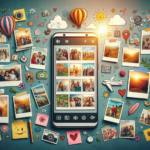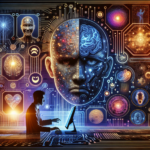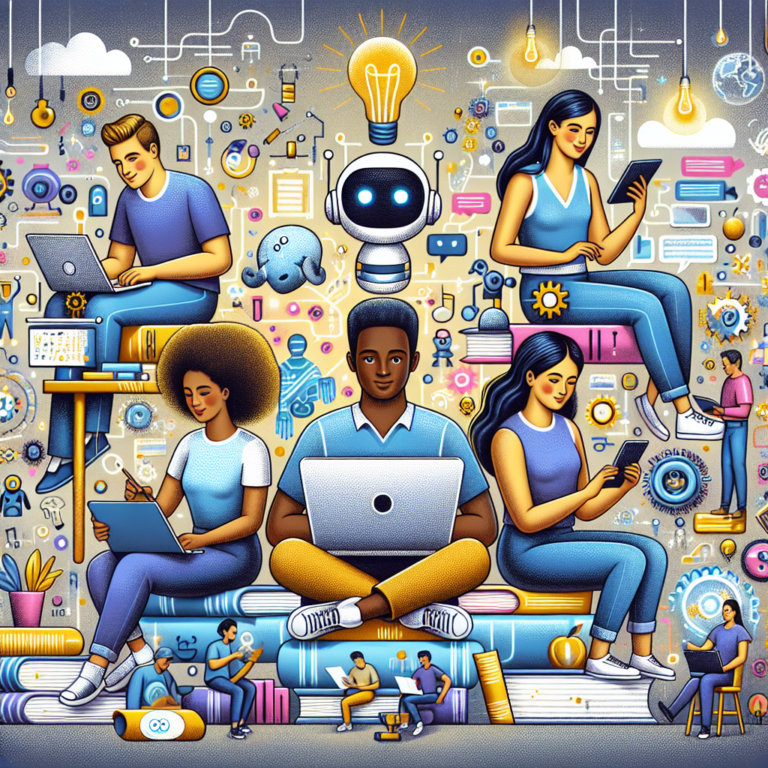OpenAI’s Innovative Strategy: Elevating Online Courses with AI Chatbots in Education
Introduction to the Role of AI Chatbots in Education
Imagine transforming your online learning experience with the incorporation of AI chatbots in education. OpenAI aims to make this a reality in the near future.
OpenAI’s Vision for Custom Chatbots in Learning
At a recent event hosted by Coeus Collective, Siya Raj Purohit from OpenAI’s go-to-market team dedicated to education shared exciting insights on the development of custom “GPTs.” These personalized chatbots are designed to seamlessly integrate into online curriculums, enhancing the learning journey for students.
Purohit envisions a future where educators create distinctive GPTs for public use, allowing learners to engage with course materials in a more dynamic and interactive manner. Although this initiative is in its early planning stages, it remains a pivotal part of OpenAI’s roadmap for the future of education.
The Promising Advantages of Custom AI Chatbots
Purohit has observed an inspiring trend among educators who upload entire semesters’ worth of content to develop their custom GPTs utilizing OpenAI’s existing tools. These resources enable students to access and interact with structured knowledge, which Purohit believes acts as an effective method for conducting research and deepening understanding.
OpenAI’s Commitment to Transforming Education
OpenAI actively pursues opportunities within the education sector, recognizing its potential for significant growth. Recently, Leah Belsky, formerly Chief Revenue Officer at Coursera, was appointed as OpenAI’s first General Manager for Education. She will oversee the effective integration of OpenAI’s technologies into school systems.
This spring, OpenAI introduced ChatGPT Edu, a version specifically designed to meet the unique needs of universities and their students.
The Future of AI Chatbots in Online Learning
Current market research suggests that the AI chatbots in education sector could reach a value of $88.2 billion within the next ten years. Despite this promising forecast, the growth has been somewhat sluggish, largely due to hesitations from educators regarding AI integration.
The GPTs Purohit mentioned could take a cue from Khanmigo, a collaborative chatbot project developed by Khan Academy and OpenAI. Khanmigo assists learners with homework, test preparation, and more, all while closely aligning with Khan Academy’s extensive educational materials.
Challenges and Opportunities of AI in the Classroom
While the capabilities of AI are impressive, several challenges remain. For instance, tests conducted by The Wall Street Journal revealed that Khanmigo struggled with basic math problems and often failed to rectify mistakes when prompted. This underscores the ongoing hurdles faced in employing AI within educational contexts.
Nonetheless, Purohit maintains a positive outlook regarding ongoing advancements in AI technology. She stated, “All of our models keep getting better, and our aim is to translate that into effective teaching and learning.”
Educator Insights on AI Integration
Despite OpenAI’s enthusiasm, many educators express caution regarding the implementation of AI tools. A recent survey by the Pew Research Center found that 25% of public K-12 teachers believe AI chatbots in education can do more harm than good. Another poll by the Rand Corporation and the Center on Reinventing Public Education found that only 18% of K-12 educators actively incorporate AI technology into their classrooms.
Implications for the Future of Learning
The integration of chatbot technology into online courses holds immense promise for reimagining traditional learning environments. Here are some key implications:
- Increased Student Engagement: Custom GPTs can create interactive learning experiences that capture student interest and promote participation.
- Personalized Educational Paths: Chatbots can tailor their responses to meet individual student needs, offering customized support and resources.
- Constant Accessibility: Learners can receive assistance 24/7, making education more flexible and accommodating to various learning schedules.
Looking Ahead: A New Era in Educational Technology
The emergence of AI chatbots in education signifies a noteworthy shift in educational methodologies. OpenAI’s commitment to empowering educators with custom GPTs could very well reshape the educational landscape. As technology progresses and more educators embrace AI tools, we can anticipate a broader acceptance of these innovative solutions for enhancing the learning experience.




0 Comments